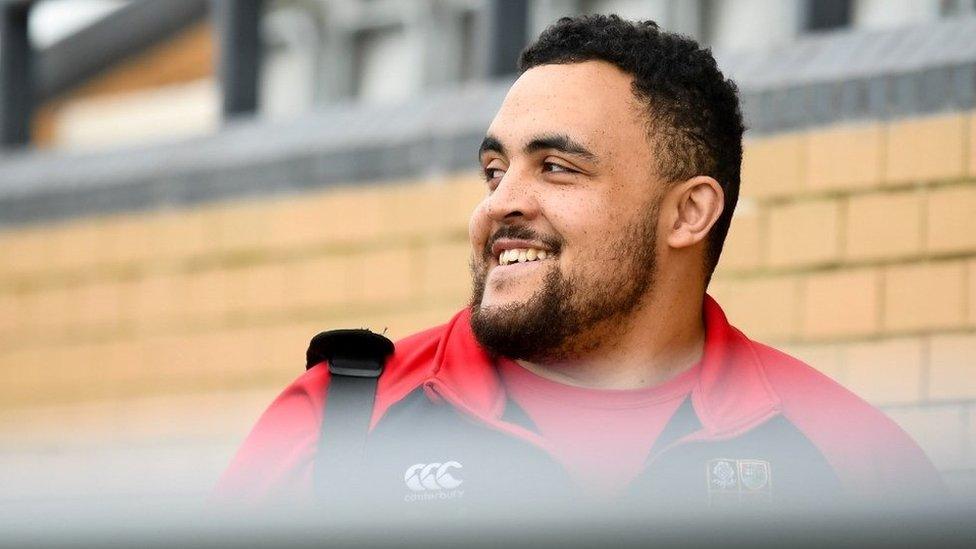Swindon stem cell donor gives young boy a second chance at life
- Published
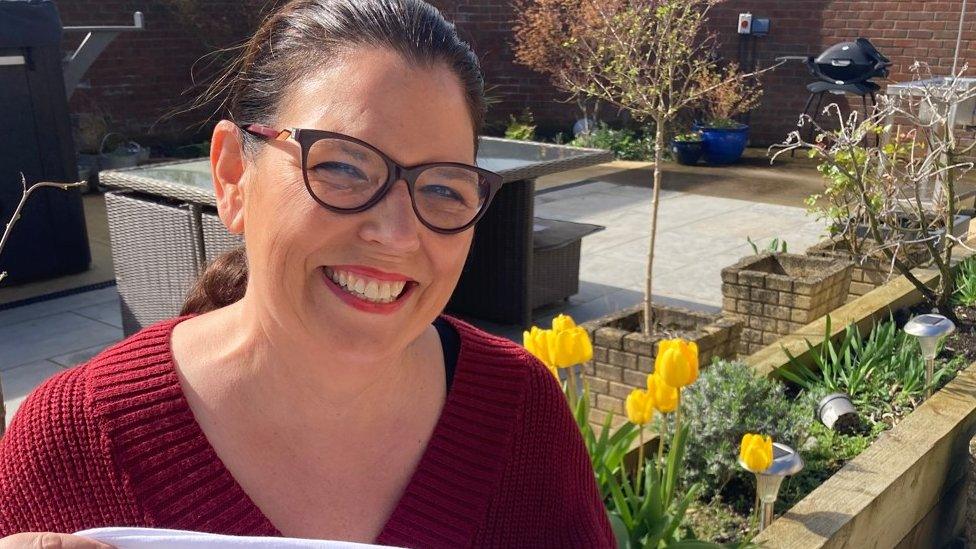
Debbi Long, who donated stem cells via the charity DKMS, said it was amazing to hear she had helped a young boy in South Africa
A stem cell donor, who gave a young boy with blood cancer a second chance at life, is now urging others to register.
Debbi Long, 51, from Swindon, who donated stem cells via the charity DKMS, external, said it was amazing to hear she had already made a difference.
"A week later I discovered the cells had gone to South Africa to help a preschool-age boy," said Ms Long.
"It was very emotional to think that I was helping him to have a better life. It was really straightforward."
According to the charity, which is the largest stem cell register in the country, someone in the UK is diagnosed with blood cancer every 20 minutes.
The organisation said it was dedicated to eradicating blood cancer and blood disorders.
Statistics from the NHS, external show that between 65% to 75% of those in need of a stem cell transplant are unable to find a compatible match through their relatives, so they rely on the generosity of strangers.
To be added to the register as a potential donor for patients worldwide, a swab test is taken.
If a match is found, the donor then undergoes a further procedure.
In 90% of donations, stem cells are collected directly from the bloodstream in an outpatient clinic without surgery.
However, in 10% of cases, the stem cells are collected from the pelvic bone under general anaesthetic, requiring an overnight stay in hospital.
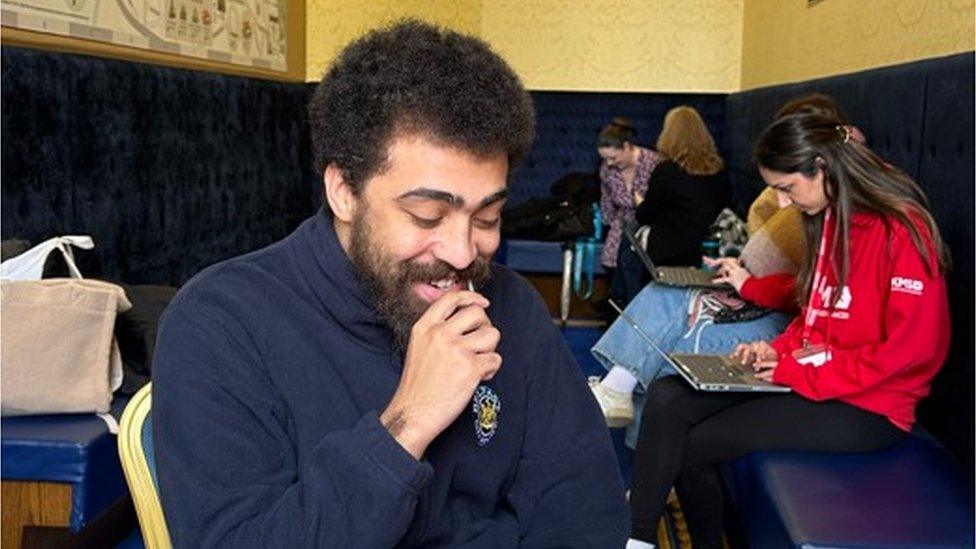
To be added to the register as a potential donor for patients worldwide, a swab test is taken
Ms Long said that although she had to donate via the more invasive procedure, it only took half an hour.
Speaking to BBC Wiltshire, she said: "DKMS were absolutely brilliant, they made it so easy, and arranged everything. I would definitely do it again. There was nothing complicated or difficult about the donation process."
Strict regulations protecting the anonymity of donors and recipients immediately following a donation means that Ms Long currently knows nothing more about the patient her cells went to.
However, she was able to send a card and small gift to the young boy she helped.
"I will get regular updates on how he's doing. You're kind of genetic twins so there is something in common and that makes you quite close," she added.
Anyone aged between 17 and 55 years old and in general good health can join the register.

Follow BBC Wiltshire on Facebook, external, X, external and Instagram, external. Send your story ideas to us on email, external or via WhatsApp on 0800 313 4630, external.
Related topics
- Published17 March 2024
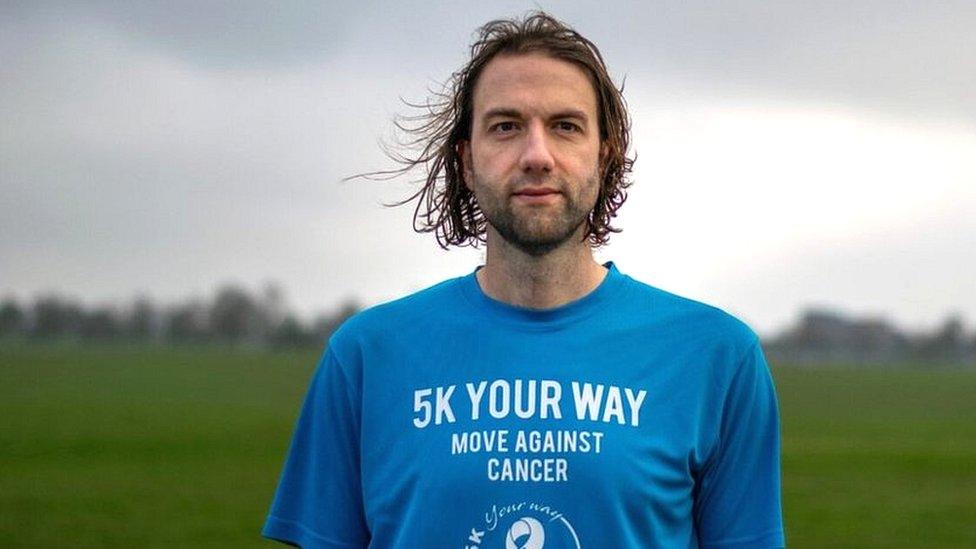
- Published24 February 2024
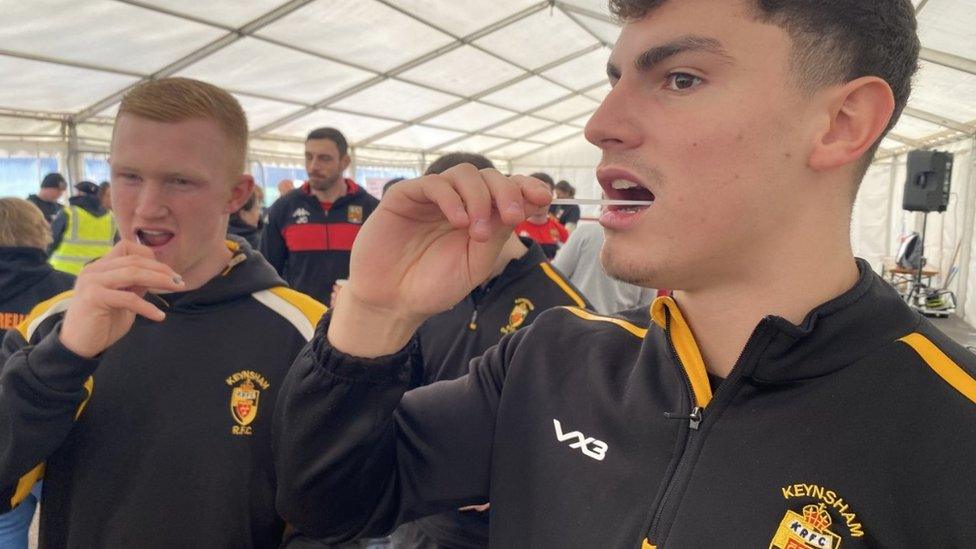
- Published19 February 2024
